7 start with A start with A

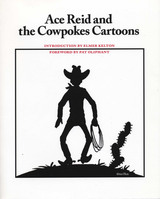
Winner, Mitchell A. Wilder Award for Publication Design, Texas Association of Museums
Folks across the West know a cowpoke named Jake. A good-hearted guy, he's always up to his eyebrows in debt or drought or prickly pears looking for them dad-blamed ole wild cows. In fact, he's so real a fella that it's hard to believe that Ace Reid made him up.
This book brings together 139 of Ace Reid's popular "Cowpokes" cartoons, reproduced in large format to show the artistry and attention to detail that characterized Reid's work. Grouped around themes such as work, weather, bankers, and friends, they reveal the distinctive "you might as well laugh as cry" sense of humor that ranch folks draw on to get through hard work and hard times.
In the foreword, Washington Post cartoonist Pat Oliphant offers an appreciation of Reid's "Cowpokes" cartoons, noting that "Ace's work has a magic of its own, and it owes nothing to anyone else." Reid's longtime friend Elmer Kelton recounts Ace's life and career in the introduction, describing how a shy boy who grew up on ranch work transformed himself into an artist-entrepreneur who never met a stranger and who made ranch work the subject of his real love, cartooning. This collector's volume belongs on the shelf of everyone who loves the "Cowpokes" cartoons, knows a fella like Jake, or enjoys the dry wit of the American cowboy.

Written in the tradition of 1066 and All That, The Pooh Perplex, and The Classics Redefined, And Quiet Flows the Vodka will, with any luck, be the final word on the ghastly first two millennia of Russian literature, history, and culture.
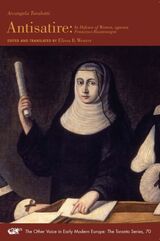
The Other Voice in Early Modern Women: The Toronto Series volume 70
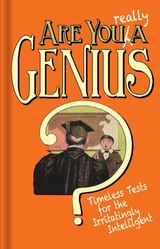
“By rearranging the letters in the word ‘plea,’ make three new words.”
“Which is heavier, milk or cream?”
If you think you know the answers to these questions, you may be a genius! Before the Mensa admissions test or the awarding of MacArthur “Genius Grants,” self-described geniuses Robert A. Streeter and Robert G. Hoehn set out in the 1930s on a mission to find more men and women of above-average intelligence. Central to this undertaking were tests filled with fiendishly difficult brainteasers, tortuous trick questions, and complex calculations that could be administered to the unsuspecting.
Are You Really a Genius? collects a series of Streeter and Hoehn’s tests into a quirky quiz book. Throughout the tests are timeless favorites, as well as many charmingly old-fashioned scenarios reflecting simpler times past. For those struggling to reach the correct answers, a final three-point “brain twister” offers a chance for redemption. And for those not quite up to the challenge, a “moron’s morgue” may help improve one’s intellectual standing. Using the answer key found at the back of the book, each test can be carefully scored to determine the exact level of genius attained.
Think you’re in the company of the “rare Craneo-Bulgis species?” In the words of the authors, “sneak up on your friends and spring the questions on the following pages.”
Still wondering about the answers to the questions at the top?
1) 28 eggs
2) leap, peal, and pale
3) milk, because cream comes to the surface
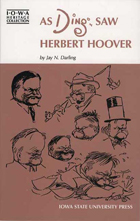
Ding Darling was a Pulitzer Prize-winning editorial cartoonist whose work appeared daily on the front page of the Des Moines Register between 1906 and 1949 and also was syndicated in 135 newspapers across the country. A brief encounter with Herbert Hoover during World War I was the beginning of a friendship that lasted until Ding’s death in 1962. After Hoover’s election as president, Ding’s relationship changed somewhat from one of strictly a friend to one of an unofficial advisor. On at least three occasions, the Darlings were overnight guests at the White House. Although their friendship deepened after the years of the presidency, Ding did not agree with Hoover on everything. In As “Ding” Saw Herbert Hoover, Ding interprets the career of Hoover as food administrator, cabinet member, candidate, and president in 57 cartoons, personal recollections, and a running commentary of the times as told in the day-by-day headlines.
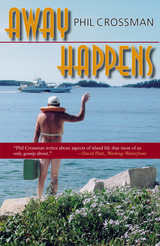
READERS
Browse our collection.
PUBLISHERS
See BiblioVault's publisher services.
STUDENT SERVICES
Files for college accessibility offices.
UChicago Accessibility Resources
home | accessibility | search | about | contact us
BiblioVault ® 2001 - 2024
The University of Chicago Press









